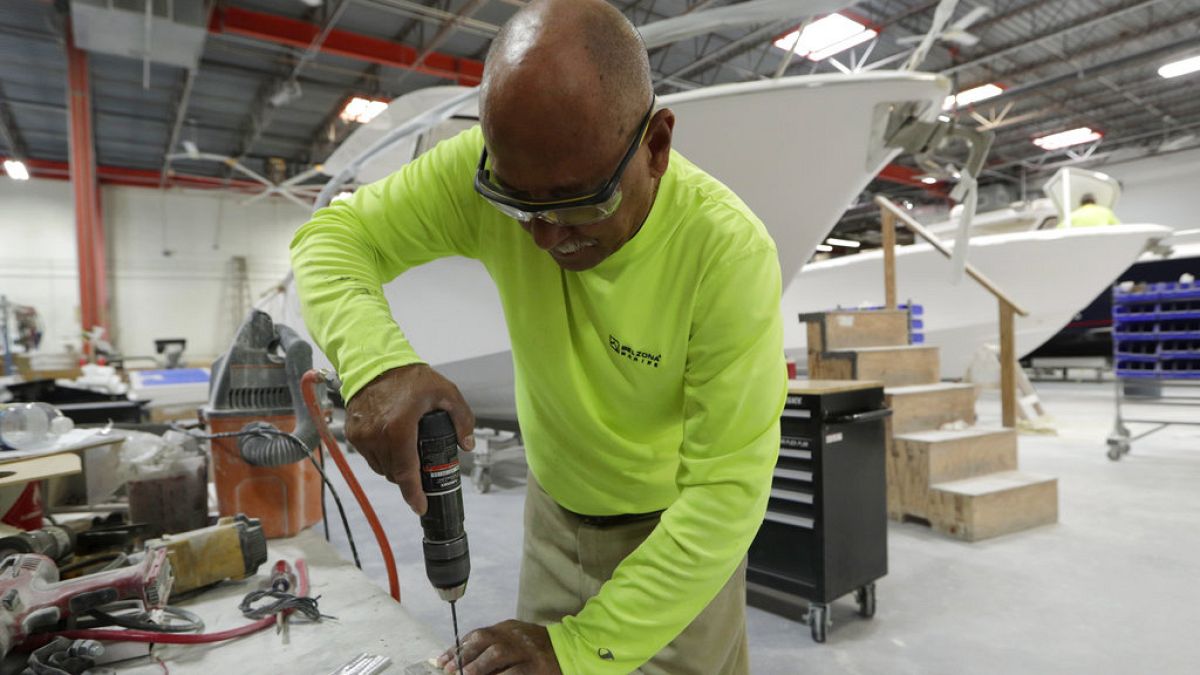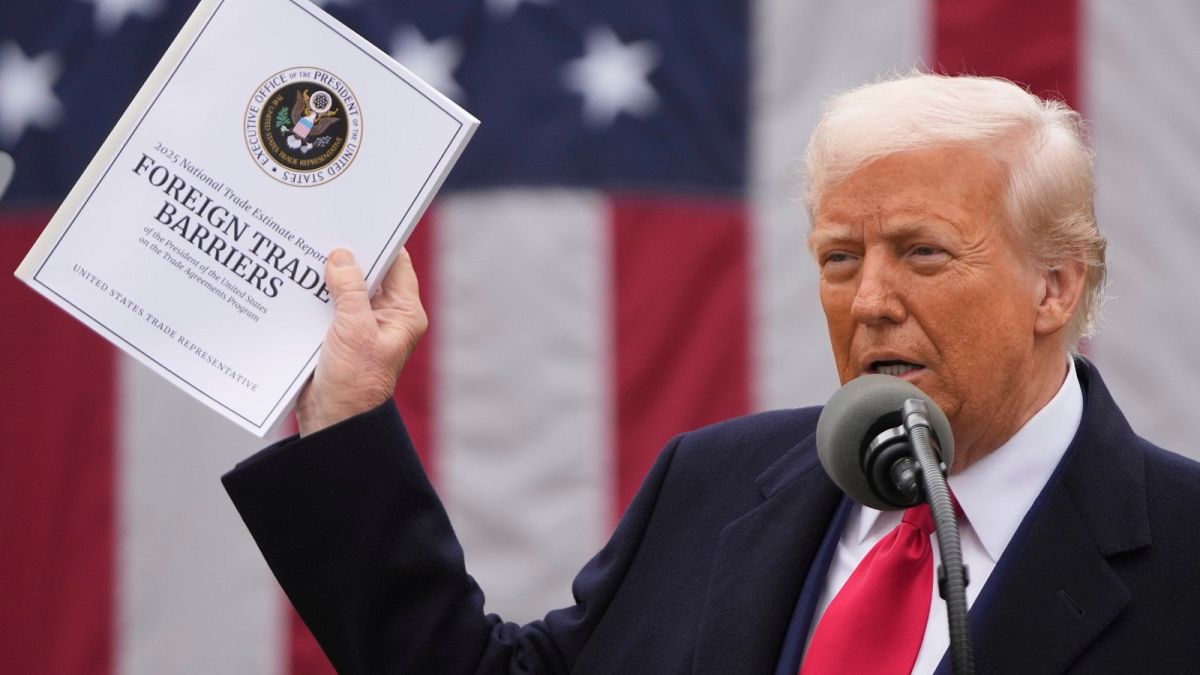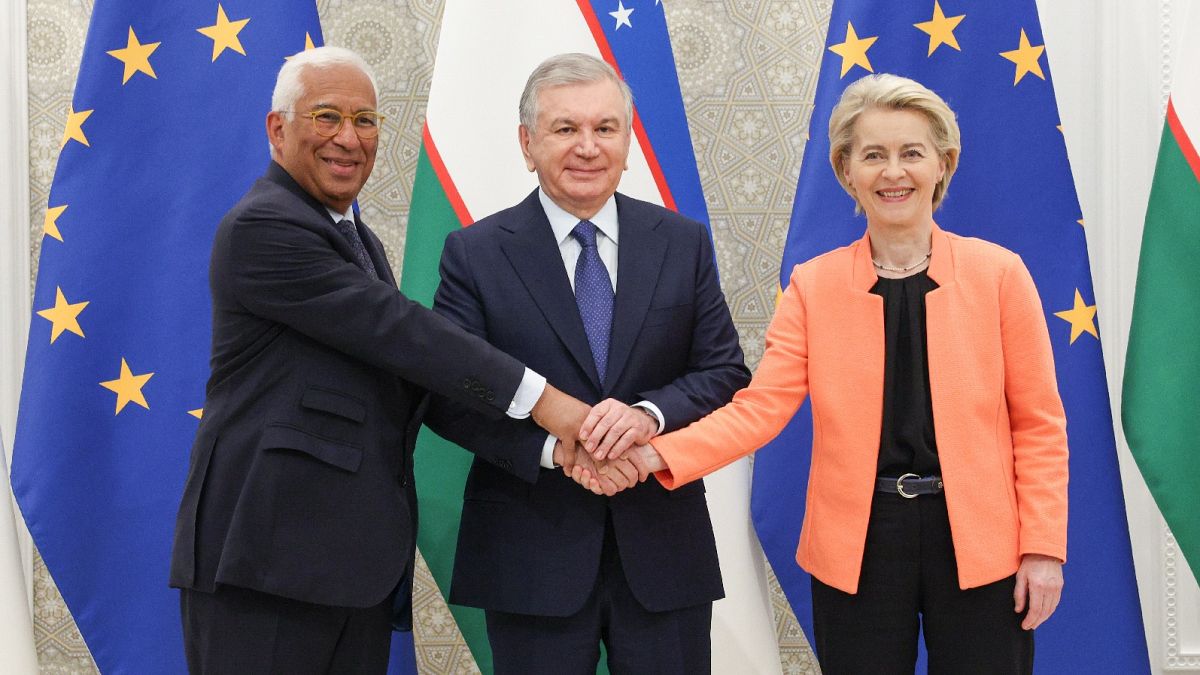A Korean NGO says it will sue the German capital's district, which ordered the removal of a statue memorialising sexual abuse victims during World War II after calls from Japan.
A South Korean diaspora NGO says it will sue a local Berlin district to keep a statue memorialising victims who suffered sexual abuse at the hands of Japanese soldiers during World War II in place after it was ordered to be removed.
Japan has long called for the statue to be taken down, and some politicians in Berlin are siding with the country.
Korea Verband, the local organisation behind the memorial known as the Statue of Peace, says the memorial is not just for the WWII victims, many of whom were Korean and were known as “comfort women”.
“In history, I think every woman can imagine what can happen in wartime if you are not protected and the soldiers are coming and raping you. So every woman can identify with the Statue of Peace,” said Nataly Han, CEO of Korea Verband.
The memorial was put up four years ago near the Korea Verband’s museum. Japan has been raising the issue with the German government, as well as local officials.
The Mitte local district said the statue needs to be taken down by the end of this month, citing time limits for temporary art in public places. The district told Euronews that Japanese and South Korean officials had visited its office and threatened to worsen relations with Germany.
The district says that aid to Ukraine was questioned, as was the possible termination of the sister-city relationship between Tokyo and Berlin.
Japan says that it never suggested ending the relationship.
A 'one-sided portrayal'
In a press release in May, the mayor of Berlin called the statue a one-sided portrayal after meeting with the Japanese foreign minister in Tokyo.
Berlin’s local government told Euronews that it is talking to the Mitte district and federal government to replace the statue with a more general memorial for women who faced sexual violence during conflicts.
‘The Senate would welcome the prompt erection of such an overarching memorial, as the topic is of great commemorative and socio-political importance,” stated a response from Berlin Senate Spokesperson Christine Richter.
“Tokyo and Berlin have enjoyed a good partnership for 30 years, which was reaffirmed during the Governing Mayor's visit to Tokyo this year and will be further expanded”.
An expert on German-Japanese relations said the government prioritises its economic and security ties with Japan over South Korea.
“I think both partners should be treated quite equally, and so far this case of the comfort women statue in Berlin lacks a bit of that cautious and balanced approach,” said Felix Doege, a research associate from the department for East Asian politics at the Ruhr-Universität Bochum.
A source with the Foreign Office told Euronews that freedom of opinion and the arts are fundamental to Germany's constitution.
“The statue in Berlin-Moabit falls in the competence of the Berlin local district of Mitte. The Foreign Office cannot give the federal states and municipalities instructions in this regard,” the source stated in an emailed response to Euronews.
Japan’s embassy told Euronews that the statue ignores Tokyo’s efforts to address the “issue of comfort women”.
In 2015, Japan and South Korea agreed to end the dispute. Tokyo apologised and gave €8.1 million to a fund supporting victims.
“The content of the inscription that accompanies the statue currently installed in the Mitte district is one-sided, not considering any of Japan's sincere efforts on the issue of comfort women, and also contains inaccurate descriptions,” the embassy of Japan to Germany stated in an emailed response to Euronews.
“Whereas the government of Japan hopes that people of all origins live together in peace and harmony in other countries, it is concerning that the establishment of the statue could bring division and conflict into peaceful relations between Japanese and Korean communities, leaving a severe scar on them. In fact, it has caused unrest in Berlin as well.”
A petition arguing to keep the statue up garnered 3,000 signatures.
“It's not only our wish, but many people who are living in this area, they want to keep the Statue of Peace,” said Han.

 5 months ago
56
5 months ago
56






 We deliver critical software at unparalleled value and speed to help your business thrive
We deliver critical software at unparalleled value and speed to help your business thrive






 English (US) ·
English (US) ·